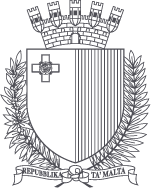This website uses cookies so that we can provide you with the best user experience possible. Cookie information is stored in your browser and performs functions such as recognising you when you return to our website and helping our team to understand which sections of the website you find most interesting and useful.
The Role of the Permanent Secretary
The Permanent Secretary is accountable to the Prime Minister for the role delineated for his or her position. He or she has the responsibility to support the general policies and priorities of the Government and to operate within the context of the management practices and procedures established for the Government as a whole.
The following is a listing of the generic duties of a Permanent Secretary:
1. To provide support and advice to the Minister, among other things by:
Anticipating issues in the House of Representatives or the media
Managing current issues and problems, keeping the Minister fully informed
Providing advice
Generating ideas to support the Minister’s agenda
Encouraging a climate in which the Minister and Ministry staff can work effectively together
2. To ensure the implementation of:
Major projects
Policy formulation and direction
Sectoral strategic and business plan development
Amending and drafting legislation
3. To provide leadership, among other things by:
Managing and motivating Directors General and Directors through delegation and progress reporting
Establishing effective collective leadership through the Ministry Management Committee
Ensuring that Directors General / Directors establish effective collective leadership through Departmental Management Committees
Instilling within the Ministry a receptiveness and enthusiasm for reform initiatives
Looking for leaders with the ability to build teams, make decisions, deliver results and communicate effectively
4. To manage financial resources effectively, among other things by:
Coordinating the production of Estimates from departments, parastatal and other associated bodies and the establishment of priorities among conflicting claims on resources
Ensuring compliance with Ministry of Finance/Treasury requirements and policies
Appreciating the need for cost-consciousness and promote re-examination of policies
Identifying major programmes where review is necessary
Keeping working methods under review and being ready to consider new ways to secure value for money
5. To manage human resources effectively, among other things by:
Ensuring compliance with P&SD / IPS requirements and policies, PSC regulations and agreements with the unions
Establishing a climate in which staff are involved, understand goals and feel recognised and rewarded
Motivating all staff to find new ways of doing things
Promoting staff development to meet new challenges and provide future leaders
Discussing appointments in Category A with the Permanent Secretary (OPM) and staff movements in other categories with the People and Standards Division
Carrying out performance appraisal of Directors General/Directors
6. To manage the handling of communications with the public, among other things by:
Working closely with constituted bodies and others to promote solidarity, exploring ideas and explaining decisions
Working to develop effective and sensitive communications with the public throughout the Ministry and in parastatal organisations
Promoting initiatives to improve customer service
7. To contribute to the collective management of Government, among other things by:
Ensuring that due account is taken of the interests and views of other parts of Government
Contributing to discussions on major Government policies
Providing long-term, strategic direction
Participating in meetings of Permanent Secretaries convened by the Permanent Secretary, OPM
8. In consultation with Directors General / Directors, where appropriate, to
Determine departmental role delineations
Arrange for organisational restructuring
Coordinate staff complement allocation
Ensure proper training and development
Ensure establishment of effective management information systems
Authorise capital acquisition within delegated authority
Establish effective linkages within the Ministry and with other Ministries
Arrange for effective operations audits






